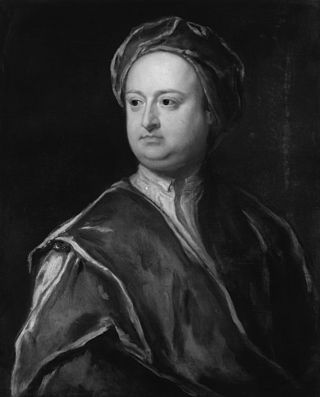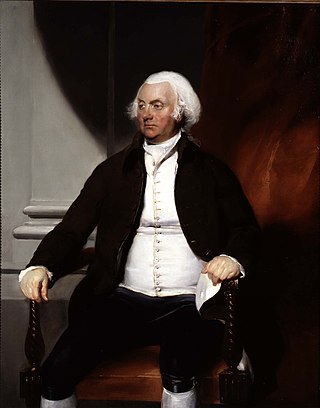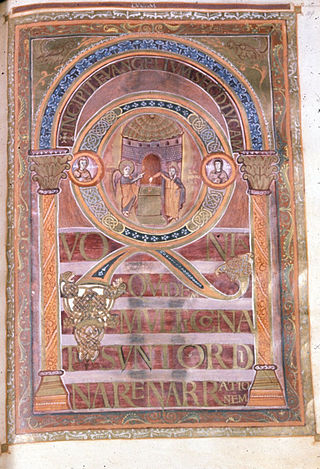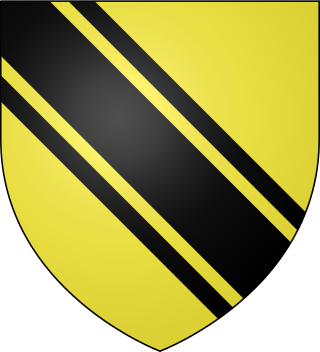
Robert Dodsley was an English bookseller, publisher, poet, playwright, and miscellaneous writer.

Robert Harley, 1st Earl of Oxford and Earl Mortimer, KG PC FRS was an English statesman and peer of the late Stuart and early Georgian periods. He began his career as a Whig, before defecting to a new Tory ministry. He was raised to the peerage of Great Britain as an earl in 1711. Between 1711 and 1714 he served as Lord High Treasurer, effectively Queen Anne's chief minister. He has been called a prime minister, although it is generally accepted that the de facto first minister to be a prime minister was Robert Walpole in 1721.

William Bentinck, 2nd Duke of Portland, styled Viscount Woodstock from 1709 to 1716 and Marquess of Titchfield from 1716 to 1726, was a British peer and politician.

The Harleian Society is a text publication society and registered charity founded in 1869 for the publication of manuscripts of the heraldic visitations of the counties of England and Wales, and other unpublished manuscripts relating to genealogy, armory, and heraldry in its widest sense. Since its inception, the Society has published more than 90 volumes of parish registers, 54 volumes of heraldic visitations, and 70 volumes drawn from other sources.
Harley is a surname, and may refer to

Thomas Osborne, 4th Duke of Leeds, KG, PC, DL, FRS, styled Earl of Danby from birth until 1729 and subsequently Marquess of Carmarthen until 1731, was a British peer, politician and judge.

Edward Harley, 2nd Earl of Oxford and Earl Mortimer, styled Lord Harley between 1711 and 1724, was a British politician, bibliophile, collector and patron of the arts.
Edward Harley, 3rd Earl of Oxford and Earl Mortimer was a British peer and Member of Parliament. He was the nephew of Britain's First Minister between 1710 and 1714 Robert Harley.

Earl of Oxford and Earl Mortimer was a title in the Peerage of Great Britain. It was created in 1711 for the statesman Robert Harley, with remainder, failing heirs male of his body, to those of his grandfather, Sir Robert Harley. He was made Baron Harley, of Wigmore in the County of Hereford, at the same time, also in the Peerage of Great Britain and with similar remainder as for the earldom. Harley was the eldest son of Sir Edward Harley and the grandson of the aforementioned Sir Robert Harley.
Edward Harley may refer to:

Humfrey Wanley was an English librarian, palaeographer and scholar of Old English, employed by manuscript collectors such as Robert and Edward Harley. He was the first keeper of the Harleian Library, now the Harleian Collection.

Edward Harley, 4th Earl of Oxford and Earl Mortimer,, styled Lord Harley from 1741 to 1755, was a British peer and Tory politician.

The Harleian Library, Harley Collection, Harleian Collection and other variants is one of the main "closed" collections of the British Library in London, formerly the library of the British Museum.

Edward Harley, 5th Earl of Oxford and Earl Mortimer was an English nobleman.

Alfred Harley, 6th Earl of Oxford and Earl Mortimer, styled Lord Harley between 1828 and 1849, was a British peer and the last holder of the title of Earl of Oxford and Mortimer.

Jane Elizabeth Harley, Countess of Oxford and Countess Mortimer was an English noblewoman, known as a patron of the Reform movement and a lover of Lord Byron.
James Tunstall (1708?–1762) was an English cleric and classics scholar.

Thomas Osborne was an English publisher and bookseller noted for his association with author Samuel Johnson and his purchase of the library of Edward Harley, 2nd Earl of Oxford.
Frances Seymour, Countess of Hertford, later the Duchess of Somerset, was a British courtier and the wife of Algernon Seymour, Earl of Hertford, who became the 7th Duke of Somerset in 1748. She was also known as a poet, literary patron and woman of letters. Her great-aunt by marriage, Anne Finch, Countess of Winchilsea, influenced her literary development. She was also influenced by the poet Elizabeth Singer, with whom she became acquainted in her youth at Longleat, where she grew up.
Awnsham Churchill (1658–1728), of the Black Swan, Paternoster Row, London and Henbury, Dorset, was an English bookseller and radical Whig politician who sat in the English and British House of Commons from 1705 to 1710.














